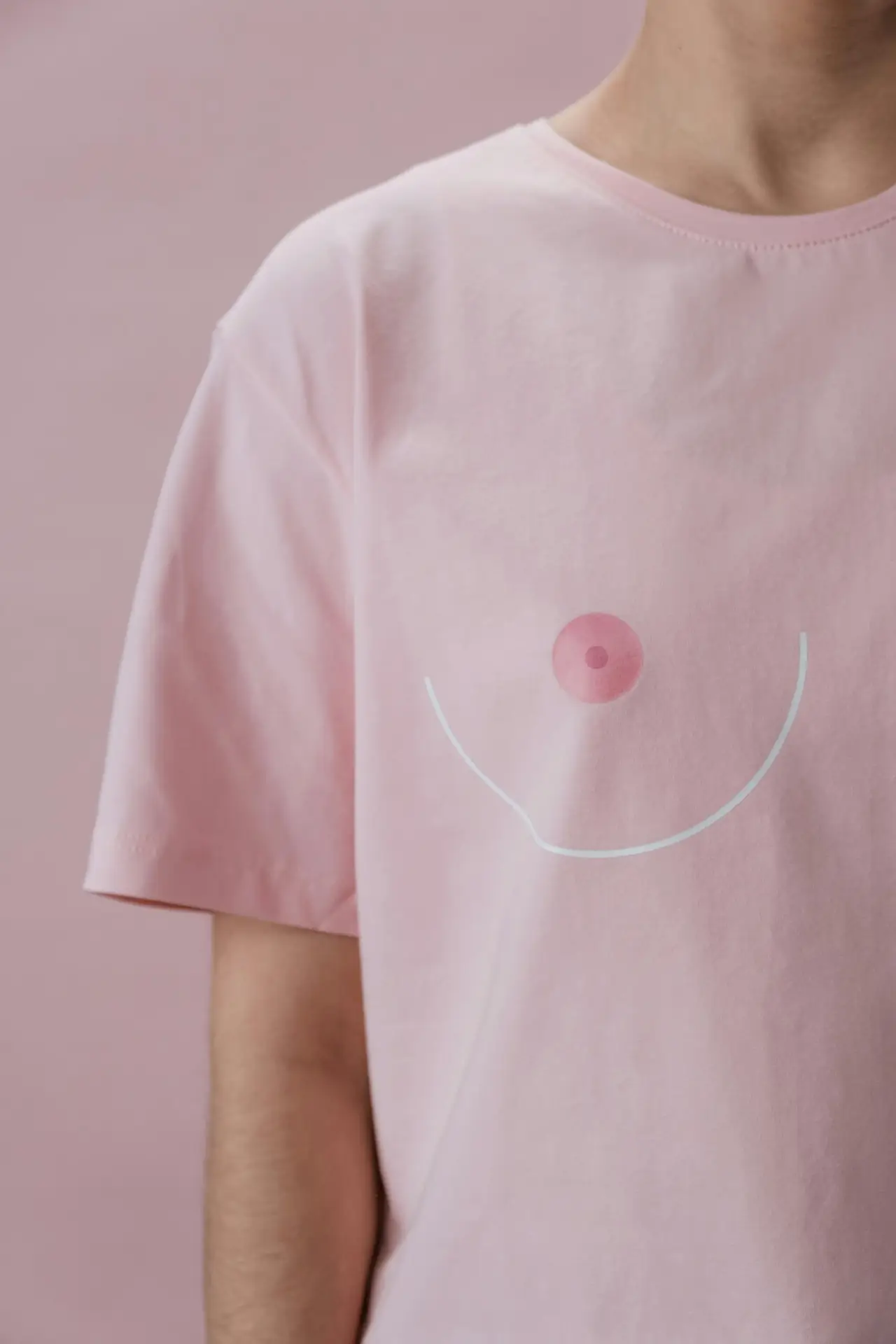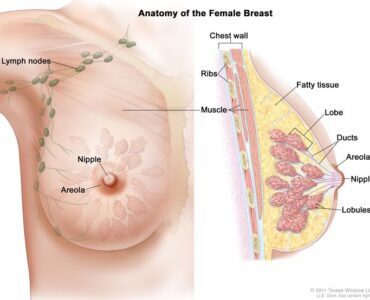Breast cancer doesn’t just change your body—it reshapes your relationship with yourself, your partner, and your sense of sexuality. Breast cancer survivors often navigate a complicated terrain of scars, fear, fatigue, and hormonal upheaval. But intimacy is still possible. So is joy, connection, pleasure, and desire. In this comprehensive guide, we explore how survivors and their partners can rediscover intimacy and reimagine sex after breast cancer, from body acceptance and menopause symptoms to rekindling desire and forging deeper emotional connections.
Redefining Intimacy After Cancer
Breast cancer may be a physical diagnosis, but its effects ripple into the emotional, psychological, and relational corners of life. Many survivors report a profound disconnection from their pre-cancer sexuality. That’s not failure—it’s a natural response to trauma, change, and survival.
Intimacy and sex after breast cancer often needs to be redefined. It might begin with touch, with laughter, with holding hands, with making space for each other emotionally. Sex may not look the same, feel the same, or mean the same—but it can still be beautiful and satisfying.
Body Image and Acceptance
After breast cancer, your body might bear scars, asymmetry, flatness, swelling, be nipple-less, or have implants that feel foreign. Some may feel a sense of loss—not just of breasts, but of their confidence, femininity, and desirability. For many, this is one of the hardest emotional hurdles.
Tips for Body Acceptance:
- Give yourself time. Don’t rush the process of self-love.
- Stand in front of the mirror and speak kindly to your body. Begin with gratitude: “You got me through.” “You are strong and resilient.”
- Explore touch at your own pace. Self-massage or lotioning your body can rebuild positive feelings about your body and sensations.
- Use visual aids like empowering photos of other survivors (e.g., from the Flat Movement or mastectomy photo projects) to normalize new body shapes.
- Let your partner in gently. Share what feels okay, and what doesn’t.
It’s normal to mourn what’s lost. It’s also possible to celebrate what’s still yours.
Loss of Breasts and Sensation: Navigating a New Reality
One of the most challenging physical changes many breast cancer survivors face is the loss of one or both breasts. Whether through mastectomy or lumpectomy, this alteration to your body can deeply affect your sense of femininity, sexuality, and self-worth. The removal of breasts is not just a cosmetic change—it’s a profound shift in how you feel about yourself as a woman and a lover.
Society has long regarded breasts as symbols of femininity, sexual attraction, and nurturing. Losing them can create feelings of grief, anger, and loss of identity for some women. Beyond the physical, the loss of sensation in the chest area— from surgery, radiation and nerve damage—adds another layer of emotional complexity.
The Emotional Impact of Breast Loss:
- Grief: It’s natural to grieve the loss of your breasts. You might mourn how they looked or felt, feel a loss of confidence you once had in your body.
- Body Image Struggles: Some women may feel like part of their identity is gone, especially if they used to identify strongly with their appearance, with breasts.
- Changes in Sexuality: Some women feel less “sexy” or less “womanly” without breasts. This can deeply affect sexual desire, body confidence, and intimacy.
- Fear of Inadequacy: You may fear that your partner sees you differently or that you will never feel complete again. This is a natural but false fear—love and intimacy can be rebuilt, even in new ways.
It is important to note that not all women feel that sense of loss. As a flattie, I feel just as feminine and beautiful as I did before when I had D Cup breasts. I am not alone. Photo essay projects Still and Flat Movement showcase other flat women who feel sexy and vibrant.
The Loss of Sensation
Even with breast reconstruction, survivors are often surprised to learn that they will experience a loss of sensation in the chest area. For some, this is a minor adjustment. For others, it can significantly impact sexual pleasure and closeness. While some doctors are able to perform nipple sparing surgery, many women also lose their nipples to breast cancer, which as we know is a highly erogenous part of the body.
How to Navigate the Loss of Breasts and Sensation:
- Explore new forms of touch: While the chest area may not be as sensitive as before, other parts of your body can become more responsive. Explore erogenous zones that you may not have focused on previously—neck, inner thighs, ears, and more.
- Reframe your body: Breasts and nipples do not define your femininity or worth. While it’s okay to mourn their loss, it’s equally important to embrace your body’s current form and find new ways to feel empowered.
- Use reconstruction or prosthetics if it helps: Some women choose to have breast reconstruction or wear prosthetics as a way to regain physical confidence in clothing. If this is something you’re considering, know that there’s no “right” or “wrong” way to move forward—it’s about what feels right for you.
- Communication with your partner: Discuss your feelings openly about your body’s changes. Let them know what feels comfortable, what doesn’t, and what you both can do to continue connecting sexually and emotionally.
- Sensual play: Instead of focusing on breast and nipple stimulation, explore other ways to connect sexually. Sensual massages, kissing, or even cuddling can feel incredibly intimate and nurturing.
- Allow time for healing: Whether you opt for breast mound reconstruction or choose to remain flat, it’s important to allow yourself time to heal physically and emotionally. There’s no rush—take it one day at a time.
Rediscovering Intimacy Beyond the Breasts
It’s important to understand that intimacy is not defined by your breasts. While you may not have the same physicality, the emotional and psychological components of love and desire remain just as potent. Your vulnerability, openness, and journey through this chapter of life can foster deeper connections with your partner.
You might find that, without breasts, other parts of your body become more sensitive. Reaching for a new understanding of your sensuality and redefining sex on your terms can be a liberating experience. Sexual intimacy can shift from a focus on performance or certain body parts to a more holistic connection.
Medically Induced Menopause and Its Impact
Due to hormone therapy (like Tamoxifen or Letrozole), Zoladex injections or an oophorectomy (removal of ovaries), women with breast cancer experience medically induced menopause, and the symptoms are more sudden and intense than natural menopause.
Common Symptoms:
- Vaginal dryness and thinning (atrophy)
- Loss of elasticity
- Hot flashes and night sweats
- Mood swings
- Sleep disruption
- Decreased libido
This hormonal whiplash can make sex feel like a chore—or even a threat. But solutions exist.
Navigating Loss of Libido
Loss of sexual desire is one of the most frequently reported issues post-treatment, and one of the least discussed. It can feel like your body and brain are out of sync. You’re alive, grateful, and maybe even in love—but not interested in sex. That’s okay. Desire is complex and can be rekindled.
Strategies to Reawaken Desire:
- Decouple sex from performance. Focus on sensuality rather than intercourse.
- Schedule time for closeness, without pressure for sex. Emotional safety can reignite the spark.
- Practice mindful touch or tantric breathing. Slow, conscious connection can awaken buried desire.
- Try erotica or fantasy. Reading or imagining sensuality can stimulate libido.
- Experiment with solo pleasure. Understanding what your body now enjoys is a crucial step.
Libido is not a light switch—it’s a dimmer. And you’re in control.
Practical Solutions for Vaginal Pain, Dryness, and Discomfort
For many survivors, sex becomes physically painful, especially penetrative sex. Vaginal dryness caused by hormone suppression can make even gentle touch feel raw.
Tools That Can Help:
- Vaginal moisturizers (used regularly, like Replens) to improve tissue quality.
- Water- or silicone-based lubricants during sex.
- Dilators to gently stretch vaginal tissue, often used under the guidance of a pelvic floor therapist.
- Vaginal estrogen (please alk to your oncologist—some options may be safe even for hormone-sensitive cancers).
- Pelvic floor physical therapy to address tightness, nerve sensitivity, or trauma.
Pain is a signal, not a destiny. Addressing the physical challenges with honesty and patience allows pleasure to return—on new terms.
Emotional Connection with Your Partner
If you’re in a relationship, both of you are survivors. Your partner may have felt helpless during your treatment. They may fear hurting you now. And you may feel guilty, anxious, or pressured to “be okay.”
This emotional minefield can block intimacy even more than physical changes.
How to Reconnect Emotionally:
- Start with small gestures: lingering hugs, gentle compliments, shared meals.
- Express affection non-sexually to rebuild trust in physical connection.
- Be honest about what you miss—and what you don’t.
- Practice vulnerability. Say, “I’m scared. But I want to try.”
- Hold each other’s grief. Cancer changed you both. Make space for that story.
Intimacy grows in the soil of emotional safety and connection.
When and How to Talk About Sex
Talking about sex can feel embarrassing, even in long-term relationships. But post-cancer intimacy requires communication more than ever.
Conversation Starters:
- “I miss feeling close to you. Can we talk about how we can reconnect?”
- “I don’t know what I want yet, but I’d love to explore that with you.”
- “Touch feels different now—can we try slowing down and seeing what feels good?”
Choose a time when you’re both relaxed, not in bed, and not during an argument. Treat the conversation as ongoing, not a one-time fix.
Therapy, Support, and Sexual Healing
Sometimes, you need outside help. That’s not weakness—it’s wisdom.
Consider:
- Sex therapists trained in cancer survivorship.
- Couples counsellors who specialize in health trauma.
- Support groups (online or in-person) where survivors share real talk about sex.
- Peer mentors through cancer organizations who can talk candidly.
- AskEllyn for a private, non-judgemental companionship
You are not alone. And your concerns are valid.
Reclaiming Pleasure and Redefining Sexual Identity
Pleasure is not just about orgasm—it’s about feeling alive in your body. After breast cancer, sexuality might not be about bras and curves, but about strength, touch, connection, and curiosity.
You might find new erogenous zones. You might redefine what sexy means. You might discover that intimacy now feels more soulful, more sacred, more powerful than before.
Tips to Reclaim Pleasure:
- Explore non-traditional forms of intimacy: bathing together, massage, mutual storytelling.
- Use toys or tools that feel empowering, not intimidating.
- Reconnect with music, dance, movement—things that bring you joy in your body.
- Reframe sex as play, not performance.
Your sexuality didn’t die—it evolved.
The Invisible Grief: Fertility and Family Building After Breast Cancer
For younger women diagnosed with breast cancer, the future they imagined often includes children, or more children. But cancer treatment can fast-track the body into menopause, damage ovarian function, or make pregnancy unsafe. This loss of fertility can be devastating, and it often goes unspoken amid the whirlwind of survival.
What You Might Be Facing:
- A rush to preserve fertility through egg or embryo freezing before chemo.
- Hormone therapy that can continue for 5 or more years, delaying or possibly ending childbearing possibilities.
- A recommendation to avoid pregnancy altogether due to hormone-sensitive cancer.
- The emotional and financial burden of exploring surrogacy, adoption, or donor eggs.
This isn’t just a medical issue—it’s a deeply intimate one. The ability to create life, to mother in the way you envisioned, is profoundly tied to identity, partnership, and future hopes. Losing it can affect libido, self-worth, and the way you relate to your body and your partner.
Ways to Cope:
- Name the grief. You are allowed to mourn what cancer took from you—even if you’re grateful to be alive.
- Talk to a reproductive endocrinologist early, even post-treatment, to understand your options.
- Seek counselling for fertility loss. Many cancer centers offer specialized support.
- Open the conversation with your partner, if you have one. Infertility affects both of you—and the silence can be more damaging than the truth.
- Connect with other young survivors navigating fertility decisions, surrogacy, or adoption.
You can still build a family, even if it looks different than you imagined. And if parenthood is no longer part of your path, it doesn’t make your life—or your legacy—any less rich or meaningful
Where This Ties Back to Intimacy
Fertility loss can complicate your sense of womanhood and sexuality. You may feel “less than,” or worry that your partner sees you differently. You may resent your body or feel betrayed by it. These are all natural responses, and they deserve compassionate attention.
What’s critical is knowing this: your worth is not measured by your ability to bear children. You are whole, valuable, and lovable exactly as you are. And intimacy—real, soul-deep intimacy—isn’t based on function. It’s built on connection.
Final Thoughts: Your Story, Your Intimacy
Sex after breast cancer isn’t about going back—it’s about moving forward, with compassion, creativity, and courage.
It’s okay to grieve. It’s okay to laugh. It’s okay to not want sex for a while—or to want it differently. You are not broken. You are becoming someone new.
Whether you’re flat, reconstructed, single, partnered, queer, straight, young, or older—your story matters. Your body deserves love. Your heart deserves intimacy. And your spirit deserves to feel seen, heard, and touched.
The journey to rediscovering intimacy may take time, but it is one worth taking.
You survived. Now, you get to thrive.
If you’re a breast cancer survivor navigating this journey, you are not alone. Let’s keep the conversation going. Share this guide with someone who needs it, or reach out to a support network that understands. Intimacy isn’t just possible—it’s your birthright.
My YouTube short on this important topic.




